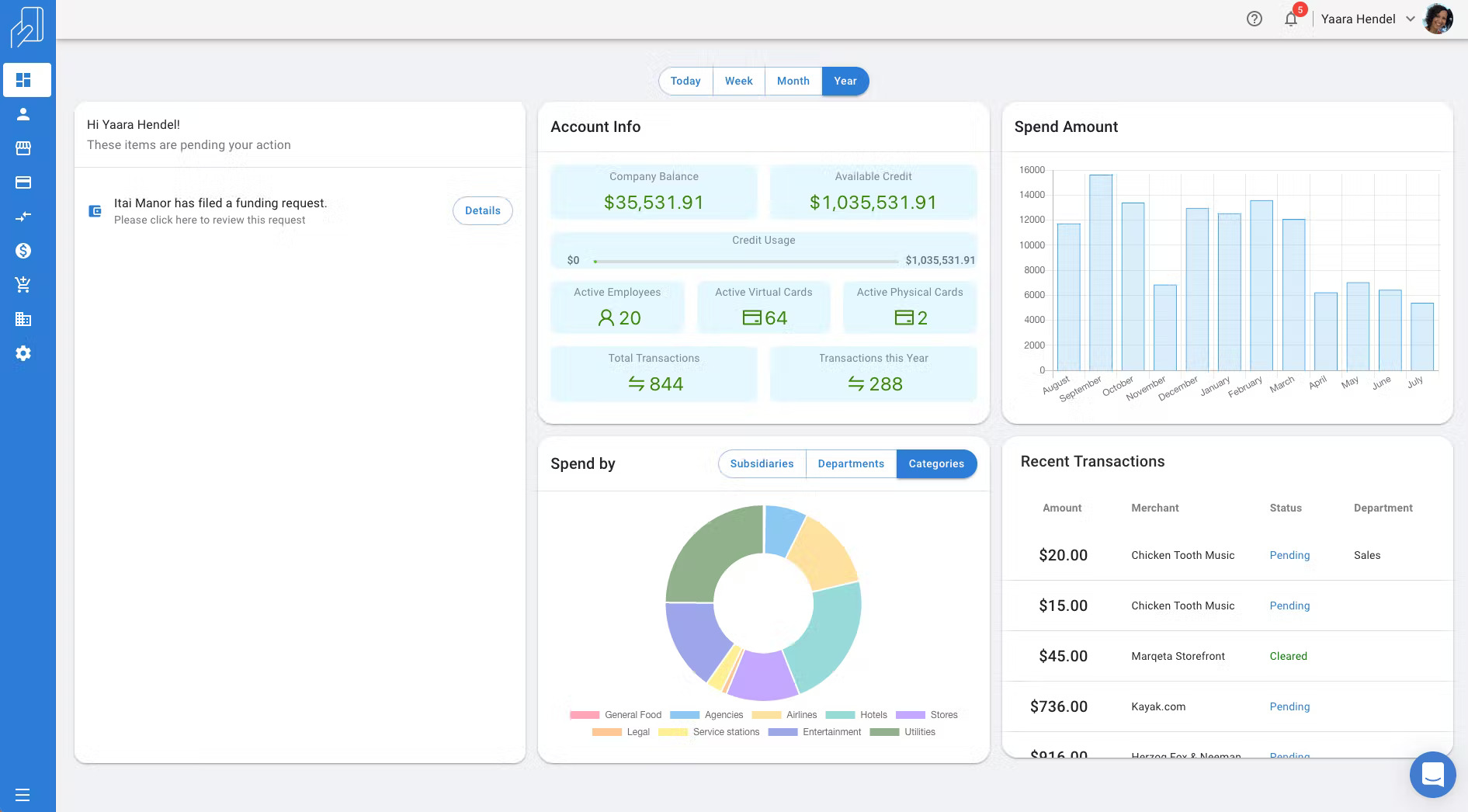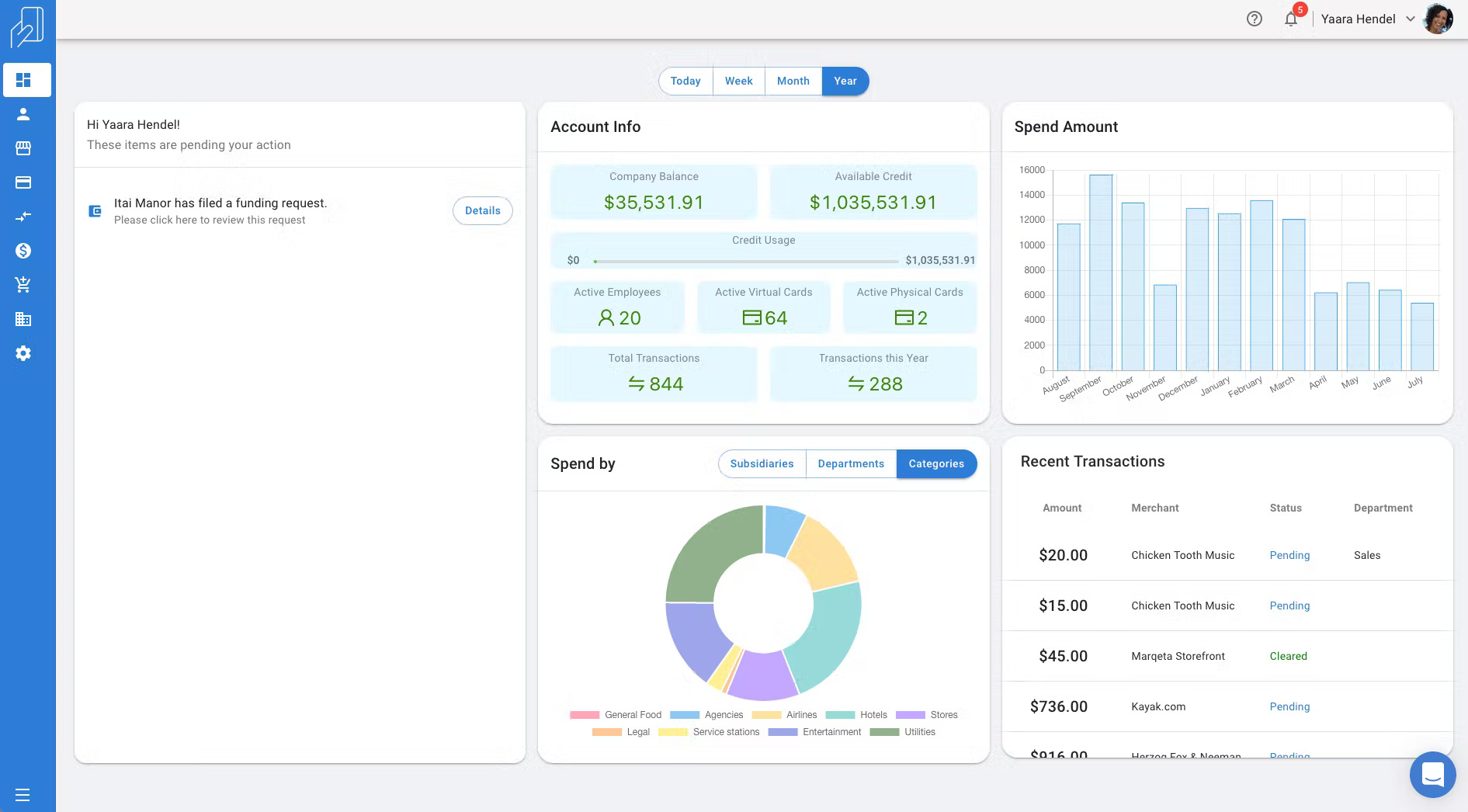
Reimbursement and spend management platform PayEm secures $220M in equity and debt
When Itamar Jobani, a software developer by trade, was working for a healthcare company, he dreaded doing expense reports every month using his employer’s preferred reimbursement tool. Jobani looked for an alternative, but didn’t end up finding one — and so he built it himself.
PayEm, as it came to be known, launched in 2019 — Jobani partnered with fellow developer Omer Rimoch to get the idea off of the ground. Creating a spend and procurement platform from scratch might’ve been a big risk, but it appears to have paid off for Jobani, who claims that PayEm now has “hundreds” of customers and fast-growing revenue (up 550% over the last year).
To set the stage for further growth, PayEm has closed a $20 million series A equity round and taken out a $200 million credit line, the company announced today. Viola Credit, Mitsubishi Financial Group, Collaborative Fund, Pitango First, NFX, LocalGlobe and Glilot+ are among those who contributed the $220 million in funds, which Jobani says will be put toward expanding PayEm’s card operations, serving larger customers and improving the employee experience within the core digital product.
Why the decision to raise debt versus equity? Jobani says that it came down to a matter of timing — and flexibility. PayEm opted for warehouse lending, where its lender set up a facility that PayEm can access and use to seed its own loan origination. As more customers borrow from PayEm, both PayEm and the lender profit off of the lending.
Warehouse lending is relatively common in fintech. Buy now, pay later startup Afterpay had five warehouse facilities at the end of 2022.
“In order to continue and support the expansion of our customers, we are using a credit facility … to finance our customers’ short-term payments,” Jobani told TechCrunch via email. “A credit warehouse facility is a tool perfectly structured to support our customers’ payments activity and provide them with monthly payment terms in order for them to keep their businesses flowing as our business continues to grow. The size of this credit raising reflects the growing volume of monthly transactions on the PayEm platform.”

Image Credits: PayEm
PayEm offers procurement tools and workflows for expense approval automation, accounts payable automation, purchase order creation, expense reimbursement and credit card management. Its “record-to-report” platform captures employee spending requests, involving relevant stakeholders for approval based on the data collected and providing budgeting capabilities for budget overseers.
“[With PayEm,] CEOs and CFOs get complete control and visibility into real-time spend at the subsidiary, department and even employee level to ensure 360-degree efficiency,” Jobani said. “Meanwhile, VPs of procurement get everything from request to reconciliation, all in one place, and employees get real-time visibility and control over every aspect of budget spend. PayEm makes it easy to request funds, file reimbursements and issue employee-specific corporate cards — all while keeping spend and budget under control.”
Of course, PayEm isn’t the only vendor offering this — and it’s no wonder, given how lucrative the space is. According to Verified Market Research, the total spend management software market was valued at $1.08 billion in 2019 and could reach $3.97 billion by 2027. Startup Airbase — which early last year teamed up with Amex on a corporate card pilot — is valued at $600 million. Tipalti, which automates accounts payables for small- and medium-sized businesses, recently secured $270 million. There’s also publicly-traded Bill.com, Brex (which not long ago snatched up $300 million), Ramp ($200 million in its latest funding round) and Zip (last valued at $1.2 billion).
But Jobani points to PayEm’s continued expansion as evidence that it’s beating back the competition successfully. The platform now creates bills and sends payments to over 200 territories and 130 currencies, and in the past year, its customer base has grown by close to 300%.
PayEm’s workforce — which is spread across offices in San Francisco, New York and Tel Aviv — is also expanding, now standing at around 100 full-time employees. Recent additions to the C-suite include chief revenue officer Steve Sovik, previously the CRO of Tipalti, and VP of product Gilad Bonjack, formerly at Hibob and Lighsticks.
“With the current macroeconomic conditions, it’s never been more important for companies to have an efficient and clear lens into their financial health. We’re pleased to be that single source of truth for them as they may weather turbulent times, navigate supply chain issues and simply need to do more with less,” Jobani added. “While the software-as-a-service industry is impacted by the overall mood, what we are seeing is that our product value is increasing during times like this, helping to visualize spend, reduce costs and make the entire procure-to-pay process easy and transparent.”

